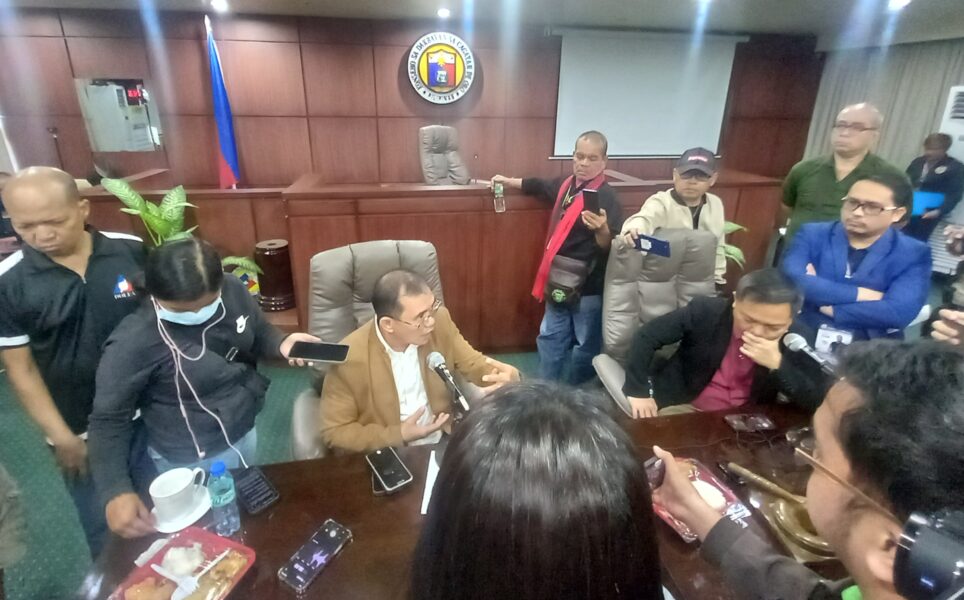
SECOND day of the fact-finding investigation by the task force on water supply revealed a looming crisis for Cagayan de Oro City.
Engr. Antonio Young, the general manager of the Cagayan de Oro Water District (COWD), disclosed that 30,000 to 40,000 households on the city’s eastern side might face water supply disconnection by Cagayan de Oro Bulk Water Inc. (COBI).
The potential disconnection is due to a pipeline that COBI owns in the area, posing a direct threat to the water supply of these households.
However, the western areas of the city are not under the same risk, as COBI does not control the water lines and treatment facilities there; those are owned by the Rio Verde Water Consortium Inc.
A review of the contract between COWD and COBI, which allows for an incremental P3 increase in water rate charges, is disadvantageous to the public, said COWD board member Gerry Caño.
Caño, who leads the Cowd’s technical group reviewing the contract, stated during the inquiry that it is the Local Water Utilities Administration (LWUA) that approves water rate increases in the country.
In its deliberations, according to Caño even considered the possibility of bringing the dispute to arbitration.
Caño, a COWD board member, mentioned that the issue might be settled amicably if taken through the correct processes.
It was reiterated during the investigation that the arbitral tribunal would first determine its jurisdiction over the dispute, following Article 19 of the Bulk Water Supply Agreement (BWSA).
This includes the validity of the contract itself and any claims of nullity.
The BWSA outlines steps for resolving disputes, starting with mutual discussion between the parties to reach an amicable settlement. If unsuccessful, the matter would proceed to arbitration under Philippine law.
The financial aspect of the dispute was also addressed.
COBI has demanded P426 million from COWD, which both Young and Caño believe could be managed through staggered payments. However, any payment over P1 million requires the approval of the COWD board, which has been hesitant.
The COWD board’s reluctance stems from their refusal to recognize the P3 per cubic meter water rate increase charged by COBI, citing force majeure due to the COVID-19 pandemic.
Under the current agreement, COBI is authorized to raise the water rate by P3.97 every three years. Currently, COWD pays P16.60 per cubic meter to COBI.
COBI’s threat to disconnect the water supply was underscored by a fourth disconnection notice issued to COWD last month over the unsettled P426 million. The notice warned that the bulk water supply would be cut off by the end of March unless the bill was paid.
During the fact-finding session, Caño pointed out to Councilor James Judith II, the chairman of the inquiry, that contract mechanisms exist to address such disputes, primarily through arbitration.
The need for arbitration stems from prior issues as well. Disallowances by the Commission on Audit (COA) regarding payments to the former bulk water supplier, Rio Verde, pushed COWD to seek a new partnership, resulting in the creation of COBI with Metro Pacific Investments Corp. in 2017.
As the discussions concluded, the officials recognized that COBI still utilizes the water distribution system of Rio Verde.
Disclaimer
Mindanao Gold Star Daily holds the copyrights of all articles and photos in perpetuity. Any unauthorized reproduction in any platform, electronic and hardcopy, shall be liable for copyright infringement under the Intellectual Property Rights Law of the Philippines.













